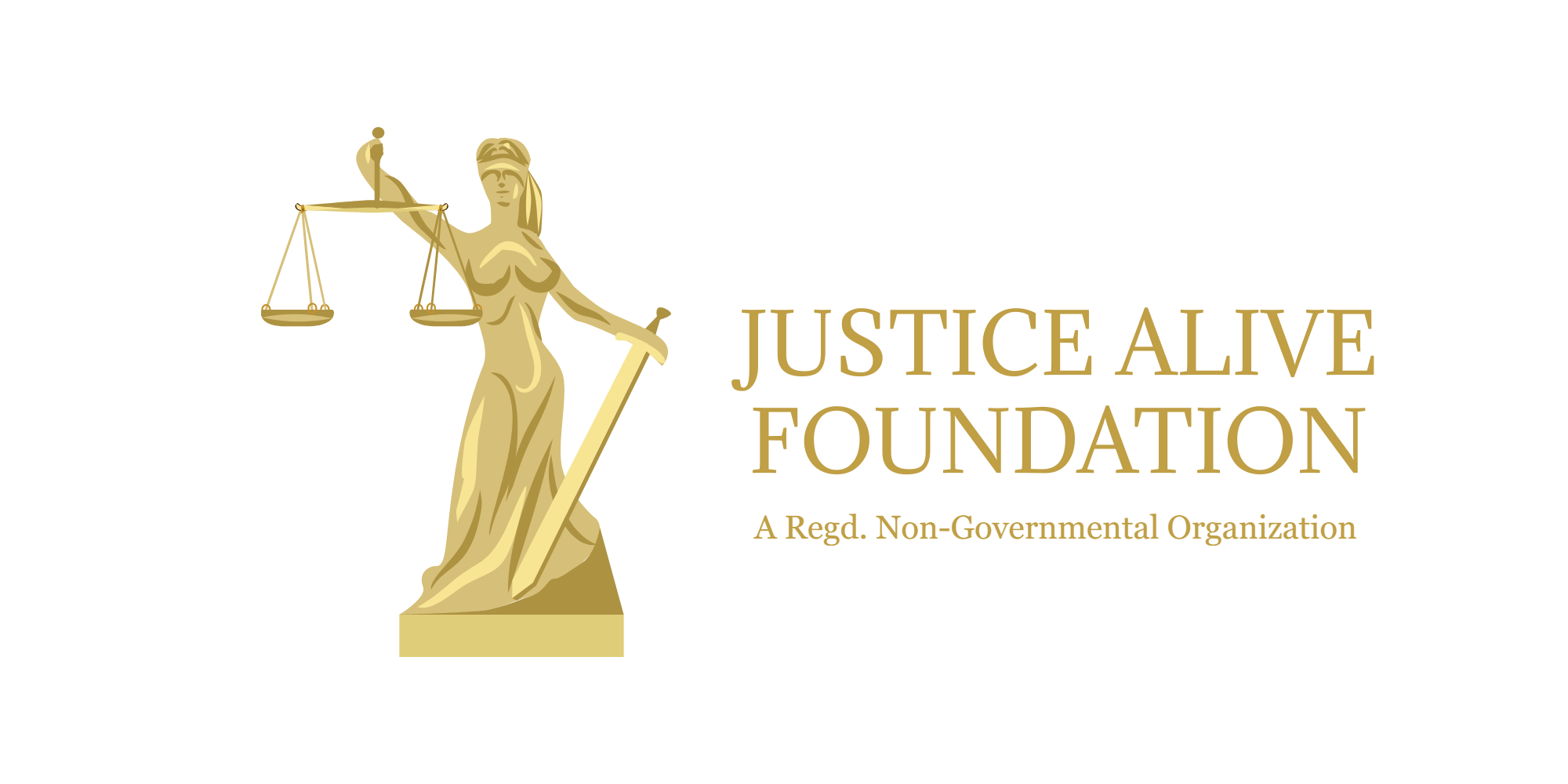
Evaluating Success of Legal Aid Programs in Family Law Matters
This article has been written by Ms. Abhiruchi Kumari.
INTRODUCTION
The importance of having readily available and reasonably priced legal counsel cannot be stressed in the complex web of family law cases when the stakes are high and the emotions are running high. The complexities of the legal system can be onerous for anyone dealing with family law concerns, which include divorce, child custody, spousal support, and domestic violence. The quest for justice could seem like an elusive ideal for individuals without the resources to retain private solicitors. Legal aid programs, which have just been introduced, have altered the situation, providing a glimmer of hope and leveling the playing field.
Consider a parent who is struggling to safeguard their children from an abusive spouse, a parent who is trying to defend their children’s best interests through a divorce, or a low-income family who is in critical need of legal advice to help them with child support issues. Programs that provide legal assistance are essential in ensuring that only the affluent few have access to justice. These programs have the ability to close the gap and provide fairness and equality to family law processes by offering support, counsel, and representation to individuals who need it.
Legal assistance programs are important because they not only provide advice but also provide people the tools they need to know their rights and fight for them. People may become confused and overwhelmed when confronted with complicated legal terminology and procedures, making it difficult for them to use the system efficiently. Legal aid programs act as guiding lights, providing assistance in navigating the complex web of family law.
Additionally, the effects of legal aid programs go beyond simply resolving family law issues right away. These programs promote independence and provide people the power to make wise decisions by helping them comprehend the nuances of their cases. By enabling families to break free from abusive cycles, promoting stronger co-parenting relationships, and raising the possibility of long-term favorable outcomes for all parties involved, this newly discovered understanding has a cascading impact.
However, a critical analysis is necessary in order to properly understand the efficiency of legal assistance programs in resolving family law issues. There are drawbacks, difficulties, and room for development in every system. It is crucial to evaluate these programs’ effectiveness in terms of client satisfaction, quality of representation, access to justice, and overall effect on the well-being of affected families. Policymakers and stakeholders can pinpoint strengths, rectify shortcomings, and plot a course towards a more just and equitable legal environment by conducting a thorough examination.
This article examines the effectiveness of legal assistance programs in settling family law issues with the goal of illuminating their importance and impact. We hope to start a critical discussion regarding the efficiency of legal aid programs by examining the many facets of access to justice and the difficulties experienced by those who need help. We want to inform and engage readers in a dialogue that seeks a more inclusive and successful system of family law resolution through an analysis of empirical evidence, success stories, and areas for improvement.
In conclusion, legal aid programs play a huge role in settling family law issues by giving people in need of help easily accessible and cheap support. By bridging the gap between the rich and the underprivileged, these programs make sure that justice is not just provided to a chosen few. Legal assistance programs give people the tools they need to successfully negotiate the intricacies of the legal system and defend their rights by providing them with advice, representation, and empowerment.
IMPORTANCE OF LEGAL AID IN FAMILY MATTERS
Family troubles are extremely delicate and emotionally charged matters that have a big impact on the lives of the people concerned. Without legal assistance, disputes over divorce, child custody, spousal support, and property division can be complicated and difficult to negotiate. But not everyone has the financial means to hire an attorney, which can result in unequal access to the legal system and potentially biased outcomes in family disputes. Here, legal aid programs are essential in guaranteeing that everyone, regardless of financial circumstance, has access to legal counsel. In this essay, we’ll examine the value of legal aid in family cases and talk about how these initiatives support access to justice and equitable outcomes.
-
EQUAL ACCESS TO JUSTICE
Making sure that everyone has equal access to justice, regardless of their socioeconomic condition, is one of the main goals of legal aid in family affairs. Legal counsel is frequently a crucial tool for people to successfully negotiate the complexities of family law and defend their rights. Those who cannot afford private solicitors may be at a disadvantage without legal aid, which could result in biased outcomes and maintain socioeconomic inequities.
Legal aid programs fill this gap by offering people who qualify, based on their economic level, free or discounted legal assistance. By providing this assistance, legal aid enables people to enter the legal system on an equal basis with their richer counterparts, exercise their rights, and effectively argue their case.
-
RESULTING AND PROMOTING FAIR OUTCOMES:
Family issues can be very emotional, and judgments taken in these situations can have a lasting impact on the lives of people involved, particularly children. By ensuring that all parties have qualified legal representation, legal assistance plays a crucial part in achieving fair outcomes. This evens the playing field and stops one side from taking unfair advantage of the other because they are financially better off.
Parties may make better decisions when they have access to legal aid. Legal assistance attorneys can offer competent counsel, clarify clients’ legal rights and obligations, and assist them in making well-informed decisions in light of their particular situation. This may result in more fair agreements, settlements, or court decisions that consider the interests of all parties.
-
TAKING CARE OF VULNERABLE GROUPS:
Families sometimes involve disadvantaged groups, such as those who have experienced domestic violence, are single parents, or are struggling financially. Without competent legal counsel, these people are especially prone to suffering negative effects.
Programs for legal assistance specialize in helping these vulnerable communities. They provide a secure, private setting where abuse victims can seek protection and guidance. To ensure the safety and well-being of people in need, legal aid attorneys can help in the acquisition of restraining orders, child custody agreements, and support orders.
-
STREAMLINING COURT BACKLOGS:
Court backlogs, a problem that frequently affects family courts, can be decreased with access to legal aid. Ineffective navigating of the legal system may occur when parties lack access to legal representation. This may lead to dragged-out hearings, erroneous paperwork, and a general slowing in settlement of family disputes.
Legal assistance attorneys are knowledgeable about family law procedures, which can speed up the process and eliminate pointless delays. By effectively handling cases, legal assistance lessens the load on the judicial system, enabling it to concentrate on more complicated and contentious issues that actually need judicial involvement.
-
INCREASING FAMILIES AND COMMUNITIES STRENGTH:
Legal aid strengthens families and communities by ensuring fair and just outcomes in family affairs. Fair and equitable dispute resolution improves relationships, minimizes the negative effects on children, and benefits the well-being of all parties involved.
Strong societies are built on stable families. Legal assistance helps families reconstruct their lives following difficult situations, such as divorce or domestic violence, by providing resources and support in addition to assisting in conflict resolution.
-
STOPPING SYSTEMATIC INJUSTICES:
Legal aid is essential in revealing systemic problems with the family justice system in addition to dealing with individual cases. Legal aid organizations frequently collaborate with legislators and reformers of the family law, highlighting potential problems with the current system and pushing for change.
Legal assistance supports attempts to make the family justice system more effective, fair, and open to everyone, regardless of financial circumstance, by lobbying for systemic changes.
In conclusion, it is crucial to provide legal aid in family cases in order to ensure equitable outcomes and justice access for all people, especially the weak and those who are economically disadvantaged. Legal aid programs guarantee that everyone may successfully negotiate the complexities of family law by bridging the gap between those who can afford legal representation and those who cannot. In addition to enabling people to assert their rights and make wise decisions, these programs also support the stability of families and entire communities. Supporting and funding efforts for legal aid is crucial for advancing justice and equality in family affairs in the effort to build a just and equitable society.
CHALLENGES FACED BY INDIVIDUALS
Even for those who are familiar with the law, navigating the complexity of family law can be a challenging endeavor. However, access to justice in family disputes becomes noticeably more difficult for people who cannot afford private legal representation. Programs for legal aid are designed to close this gap and help individuals in need. However, there are a number of obstacles that people must overcome in order to obtain legal representation in family law matter. In this post, we’ll go through some of the major difficulties that people run into while attempting to navigate the complexities of family law with the use of legal aid.
-
Insufficient Access to Legal Aid Services:
The lack of access to legal services for those seeking assistance in family law cases is one of the main obstacles they must overcome. Due to their frequent financial constraints and strong demand, legal aid organizations are frequently limited in the number of cases they can accept. As a result, some people can be abandoned or forced to wait a long time before receiving legal assistance. Accessing legal help slowly can make already-existing family problems worse and make it more difficult to find just and efficient remedies.
-
Qualification Standards and Financial Challenges:
Even though the goal of legal aid programs is to help those with low incomes, meeting their tight eligibility requirements can be difficult. To be eligible for free or subsidized legal assistance, people must fall under a certain income range. However, when taking into account other necessary costs like housing and medical bills, the income cut-offs might not adequately reflect a person’s current financial status.
Even if a person just barely qualifies, the expense of engaging a private counsel may still be prohibitive. As a result, a sizable number of people find themselves in a vulnerable situation, unable to afford legal counsel but ineligible for legal aid.
-
Services Provided by Legal Aid are Limited:
Because the scope of legal aid services is frequently constrained, it can be difficult to examine every aspect of a family law issue thoroughly. Legal assistance might, for instance, fund divorce processes, but it might not cover post-divorce issues like changing child custody arrangements or enforcing support judgments. Due to the constrained range of services, clients may receive insufficient or fragmented legal assistance, which puts them at a disadvantage when addressing continuing family law concerns.
-
High caseloads and time restrictions:
Due to the enormous demand for their services, legal aid attorneys frequently deal with heavy caseloads and time constraints. They might not have the time or money to give the same degree of care and preparation that private solicitors do. This may have an impact on the standard of representation and result in poor legal counsel or representation in challenging family court situations.
-
Family Matters Are Emotionally Charged:
Family law proceedings, which deal with matters like divorce, child custody, and spousal support, are intrinsically emotional. Even with legal assistance, emotional issues can impair judgment and decision-making, making it difficult for people to properly represent their interests. Legal aid lawyers must be equipped to deal with the emotional aspects of family law issues and offer their clients sympathetic yet objective advice.
-
Complex legal processes and documentation:
For those without legal experience, the variety of legal processes and documentation involved in family law can be bewildering. Without the right support, submitting paperwork, going to court hearings and meeting deadlines can be difficult. Legal aid attorneys are crucial in assisting people with these procedures and ensuring that the required paperwork is correctly filled out and submitted on time.
-
Cultural and Language Barriers:
Language difficulties can make it more difficult for people from different linguistic and cultural origins to navigate family law issues. Effective communication with legal aid providers and the court system might be hampered by the tremendous difficulty of understanding legal terms and procedures in a different language. To effectively overcome these challenges, legal aid organizations must work to offer interpreters and culturally appropriate services.
-
Lack of knowledge and information:
It’s possible that many people dealing with family law difficulties are unaware of the presence and accessibility of legal aid programs. Lack of knowledge about one’s alternatives, rights, and support may cause one to make hasty or ignorant decisions. In order to make sure that persons in need are aware of the options available to them, legal aid organizations must engage in outreach and instructional activities.
Individuals in need may face a number of difficulties when navigating the complexities of family law with the help of legal aid. The difficulty of properly accessing justice may be impacted by a variety of factors, including limited availability, strict eligibility requirements, the highly charged nature of family problems, and language barriers. All people should have equal access to knowledgeable legal representation and assistance in family law proceedings, thus it is critical for legal aid organizations and legislators to address these issues in a proactive manner. By overcoming these challenges, legal assistance can significantly contribute to fostering just outcomes and ensuring that those who most need it have access to the court system.
EFFECTIVENESS OF LEGAL AID PROGRAMS
Legal aid programs are essential for ensuring that people with family law issues, especially those who cannot afford private legal assistance, have access to justice. Various critical outcomes, such as successful mediation, settlement rates, and client satisfaction, are evaluated in order to determine the efficiency of legal aid programs in resolving family law matters. In this post, we’ll talk about how these results might be used to assess the effectiveness of legal aid in family law matters.
-
Successful Mediations:
A crucial out-of-court dispute resolution method that can assist parties in coming to settlements is mediation. Legal assistance programs frequently provide mediation services to assist families in resolving their conflicts out of court and lessen the load on the judicial system. The efficiency of the program can be determined by analyzing the outcomes of mediations that legal assistance has assisted.
Legal aid is successful in supporting parties in achieving amicable settlements, which may include child custody arrangements, visiting schedules, and property split. Mediations have a high success rate, demonstrating this. The capacity to resolve disputes through mediation can help the parties involved save time, money, and mental stress. Better post-divorce relationships are also fostered by successful mediation, which is advantageous for families with children in particular because it encourages a more stable and peaceful atmosphere for them.
-
Settlement Rates:
In family law cases, striking agreements outside of court is frequently desirable because going to trial may be expensive, emotionally taxing, and time-consuming. Legal assistance programs that successfully negotiate and facilitate agreements between parties, especially in disputed situations, have a high settlement rate.
A higher settlement rate reveals that legal aid attorneys are adept at promoting cooperation and compromise while advocating for the rights of their clients. In comparison to court-imposed orders, settlements achieved with the help of legal aid support can result in more favorable outcomes for the parties concerned. This is because they have greater control over the final decisions.
-
Client satisfaction:
Measuring customer satisfaction is an essential part of determining how effective legal aid programs are. Satisfied clients are more likely to adhere to the agreements or court orders achieved with the aid of legal aid and are more likely to have faith in the legal system.
Surveys of customers’ satisfaction can give useful insight into how well legal aid services are performing. The surveys can evaluate a number of factors, including the legal aid attorneys’ communication skills, their capacity to comprehend and respond to client’s requirements, the quality of the legal advice they offer, and their overall experience working with the legal aid program.
Positive client feedback demonstrates that legal aid programs are fulfilling the needs and expectations of the people they assist. It can also serve as an indicator of the effectiveness of the program and the attorneys’ proficiency in negotiating the complexity of family law matters.
-
Cost Savings:
Legal aid programs have the ability to reduce costs for both the people seeking assistance and the judicial system. Legal aid programs allow people to receive legal services they might not otherwise be able to afford by offering free or heavily discounted legal assistance.
The difference between the costs incurred when using legal assistance and the prospective costs of engaging a private attorney can be used to measure cost savings. Clients who get legal assistance might be able to obtain important legal resources and representation without the financial burden that private representation might bring. Legal assistance can also assist in lightening the load on the court system by resolving cases through mediation and settlements, freeing up judicial resources for more complicated and contentious cases.
-
Reduced Court Backlogs:
Due to the large number of cases, family courts frequently have significant backlogs. Legal aid initiatives that successfully settle family law cases outside of court may help to decrease these backlogs.
Parties are more likely to have their claims prepared appropriately and settled quickly if they can access legal aid. As a result, matters may be resolved more quickly and with fewer court appearances, allowing the legal system to concentrate on situations that really call for judicial action. Everyone participating in the legal system, including litigants, attorneys, court personnel, and judges, benefits from fewer backlogs in the courts.
Various outcomes, such as successful mediation, settlement rates, client satisfaction, cost savings, and decreased court backlogs, are evaluated in order to determine the efficacy of legal aid programs in family law cases. High success rates in settlements and mediations show that legal aid programs are successful in assisting parties in coming to amicable agreements outside of court. Positive client satisfaction feedback demonstrates that legal aid programs satisfy the requirements and standards of the people they assist.
Legal aid programs also help cut costs by giving clients access to legal counsel without placing a substantial financial load on them. Legal assistance also assists in reducing court backlogs by expeditiously settling cases, which frees up the court system to concentrate on more complicated matters.
Overall, the review of these results shows the considerable contribution of legal aid to the resolution of family law disputes, the promotion of just outcomes, and the provision of access to justice for those who might otherwise find it difficult to negotiate the complexities of the legal system. Legal aid programs may significantly contribute to ensuring that everyone has equal access to justice, regardless of their financial situation, by continuously evaluating and improving their services.
CONCLUSION
The complexity of family law cases, together with the high stakes and strong emotions involved, highlight how crucial it is to have readily available and reasonably priced legal assistance. For those struggling with family law issues, legal assistance programs have emerged as a ray of light, leveling the playing field and offering a glimpse of justice. These programs give those who would otherwise have no recourse the much-needed support, advice, and representation.
In family law matters legal aid programs have demonstrated their importance in fostering equality of access to justice and obtaining fair results. These programs make ensuring that justice is not simply available to the wealthy few by providing free or heavily discounted legal assistance. They equip people with the information and resources they need to understand their rights and fight for them, guiding them as they negotiate the complex web of family law.
Legal aid has an influence that goes beyond quick fixes since it promotes independence and well-informed decision-making. This increased awareness has a contagious impact on communities by empowering families to break out from destructive cycles, promoting cooperative co-parenting partnerships, and increasing the likelihood of long-term positive outcomes.
To completely comprehend the efficiency of legal aid programs, nevertheless, a thorough evaluation is required. Every system has issues and room for development, thus a critical study is required. Policymakers and stakeholders can identify strengths and fix deficiencies, charting a route towards a more just and equitable legal landscape, by evaluating outcomes like successful mediations, settlement rates, client satisfaction, and overall impact on affected families.
This essay discusses the value and significance of legal aid initiatives in settling family law issues. It starts a critical conversation about how effective these programs are, looking at issues including access to justice, difficulties for those in need, and room for improvement. We hope to engage readers in a discussion that aims to develop a more inclusive and successful system of family law resolution by examining empirical evidence, success stories, and areas for improvement.
In conclusion, legal aid programs are essential for resolving family law disputes because they give those in need of assistance access to inexpensive legal representation. These programs enable people to successfully navigate the complexities of family law by bridging the gap between those who can afford legal assistance and those who cannot. Legal aid clients feel more in control of their situation by standing up for their rights and making wise choices.
There is no way to emphasize how crucial legal aid is in family cases. Giving people the tools they need to assert their rights and make wise decisions goes beyond simply giving them advice or legal representation. Legal assistance organizations act as beacons, illuminating the way through the convoluted legal system and leveling the playing field for everybody. As a result of their efforts, legal aid programs improve the lives of individuals, families, and communities by advancing the causes of justice and fairness in family affairs. In order to promote a society where justice is available to all, regardless of their financial situation, supporting and investing in legal aid efforts is essential.





This Post Has 0 Comments